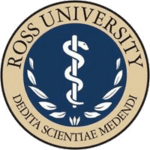SALE: Get $50 off your trial session with promo code TRIAL until 12/13/24!*
Surgery Shelf Exam Tutoring and Personalized Prep Support
Score in the top percentiles with a professional
Surgery Shelf Exam tutor.
Purchase Your First Tutoring Session Now
You can purchase your first tutoring session now or schedule a time to speak to one of our consultants to get more information.
The Elite Difference is in the Details
There are several different Surgery Shelf Exam tutoring options available to students, so what makes Elite the best? When you sign up to work with an Elite Shelf Exam tutor, you are getting much more than access to our world-class MD tutoring services. 24/7 email support, a student success team, an organized custom curriculum, and our 100% unused hour refund guarantee are just a few of the reasons our students love us.
Who Needs Surgery Shelf Exam Tutoring?
Receiving 1-on-1 help from a Surgery Shelf Exam tutor is always helpful, but it isn’t necessary for everyone. While a tutor may not be necessary for everyone, anyone who seeks additional support, wishes to improve their understanding of high-yield topics, or wants a structured study schedule can significantly benefit from our tutoring sessions. At Elite Medical Prep, we’re here to guide you every step of the way, helping you turn your aspirations into reality.

Students with Marginal Shelf Exam Performance
Your Shelf Exam grades are considered secondary only to USMLE in evaluating a candidate for residency and are anticipated to hold more weight after Step 1 becomes pass/fail. Performing well (especially on the Surgery and Medicine Shelf Exams) can be critical in matching into a good residency program.

Students with Anxiety/ Poor Testing Skills
If you historically have high test anxiety and/or are a poor standardized test taker, a couple ABSITE tutoring sessions focused on strategy and wellness can be very beneficial to your success.

Students with a Previous Exam Failure
If you have previously failed USMLE Step 1 or any of the Shelf Exams you have already taken, you are at risk for another failure if you do not make changes to your study habits. A Shelf Exam tutor can help evaluate where you went wrong last time and make sure that this time you have a more successful outcome.

Students Who Struggled with the NBME CMS
The NBME Clinical Mastery Series (CMS) is designed to provide students with realistic practice questions for the Shelf Exams and performance feedback. Therefore, low scores on the NBME CMS exams can indicate that it may be time for a shelf exam tutor.

Students with Poor Time Management Skills
Shelf Exams can be particularly difficult to study for since students often find themselves incredibly busy with their rotations and Step 2 CK prep. However, Shelf Exams have become increasingly important in honors, high pass, and passing grade determination. A tutor can help ensure you are studying efficiently in the time you have.

Students Applying to Competitive Specialties
Achieving honors in your clinical rotations, especially after USMLE Step 1 becomes pass/fail, may tremendously help you match into competitive residency programs. It is a good idea to consider a Shelf Exam tutor especially for Surgery and Medicine if this is a goal of yours.
What to Expect from Surgery Shelf Exam Tutoring
Our approach to surgery shelf tutoring for medical students begins with one core principle: no two learners are alike. Each medical student receives a fully individualized tutoring plan shaped by their clinical rotation demands, testing timeline, and medical school shelf exam prep needs.
Tutoring begins with a diagnostic session to assess both academic strengths and clinical reasoning skills, identifying specific areas for growth. This assessment fuels the creation of a personalized surgery shelf prep roadmap – one that accounts for your exam date, your rotation schedule, and how best to fit study into the demands of clinical work.
During your sessions – which typically last 60 to 90 minutes – you’ll engage in targeted case-based learning. Tutors walk you through surgery shelf practice questions modeled after NBME vignettes, guiding you in clinical reasoning and surgical recall under timed conditions. Each session emphasizes high-yield surgery shelf topics and strategies to improve efficiency across long blocks of clinical-style questions such as rapid triage decisions or surgical complication management. If you’re wondering how to pass the surgery shelf, this real-time coaching is where measurable improvement begins.
A Flexible Plan That Evolves With You
Your study plan is dynamic – not fixed. Students meet with their tutors weekly or multiple times per week, depending on proximity to the test date. Tutors regularly adjust your plan based on performance, helping you stay agile and focused as your knowledge builds. Your tutor will also help you incorporate daily clinical experiences into a personalized and responsive study strategy.
Between sessions, students can access email support to troubleshoot concepts or refine their surgery shelf exam strategy. This flexibility is especially useful for those balancing hectic clinical schedules or leveraging our online surgery shelf tutoring options.
Ultimately, our goal is to help you master not just the content, but the test itself. By pairing adaptive tutoring with evidence-based learning methods, we provide surgery shelf study help that supports long-term retention, Step 2 CK readiness, and confident performance. It’s the kind of medical education support that turns solid knowledge into standout scores.
100% Online, Without Compromising Quality
As pioneers in the online tutoring industry for medical school exams, we've been teaching exclusively online for the past 10 years. Our teaching methodology is based on research in education and is custom-tailored to your needs as a student.
Learn More
Work with Experts in Surgery
The NBME Subject Examinations, commonly referred to as the NBME Shelf Exams, are a series of subject-specific standardized tests administered after certain 3rd-year rotations. The exams are used at virtually all LCME-accredited medical schools in the US and Canada, as well as many osteopathic medical schools, and approximately 25 international schools. The Surgery Shelf Exam is designed to test student knowledge on pharmacotherapy, intervention management, and diagnosis of conditions requiring surgical intervention across all systems of the human body.

What is the Format of the Surgery Shelf Exam?
The Surgery Shelf Exam is a 110 multiple-choice question exam that aims to assess student mastery of the surgical management of a wide range of health disorders at the conclusion of the Surgery clerkship. Due to the wide coverage of topics, the Surgery Shelf exam is considered the most challenging and important of the Shelf Exams.

How is the Surgery Shelf Exam scored?
The Surgery Shelf, like all other shelf exams, is scored as a percentage correct out of all items. The Surgery Shelf Exam report will provide an in-depth analysis with a bar graph detailing your performance, broken down by topic.

How Long is the Surgery Shelf Exam?
The Surgery Shelf exam is 165 minutes. It can only be taken at authorized locations, testing centers, or on the campuses of some medical schools.
Sign up and start surgery shelf tutoring within a few days.
Surgery Shelf Tutoring Rates range from $195-$400/hr
*As determined by tutor seniority and extensive track record with Elite Medical Prep
Schedule your consultation.
Talk with our learning advisor about your goals.
Schedule your trial session.
Topics Commonly Covered in Surgery Shelf Tutoring
Effective surgery shelf prep begins with a clear understanding of what’s most likely to appear on test day. That’s why our tutors structure each plan around NBME-aligned objectives, tailoring topic selection to the blueprint of the NBME shelf exam and the realities of clinical practice.
Tutors guide students through the high-yield topics that consistently appear on the NBME Surgery Shelf Exam. Emphasis is placed on core systems like gastrointestinal, cardiovascular, and endocrine – areas that regularly appear in shelf questions and challenge even well-prepared learners. You can expect focused review sessions covering everything from bowel obstructions and thyroid nodules to trauma management and post-operative care.
Equally important is clinical reasoning. Our tutors highlight decision-making pathways that test your ability to distinguish between observation, medical therapy, and surgical intervention. Using case discussions rooted in emergency medicine scenarios and complex inpatient care, students learn to navigate diagnostic dilemmas under pressure.
We also reinforce disciplined test-taking strategies to improve timing and accuracy. Through active breakdown of practice questions, students learn how to quickly identify distractors, spot buzzwords, and extract the key clinical detail that leads to the correct answer. Whether you’re reviewing ethics in surgical consent or managing wound infections, we help you direct your study time toward what matters most.
To support integration, tutors will revisit foundational sciences such as pharmacology, pathophysiology, and microbiology – especially when these subjects directly influence patient outcomes. For students aiming to connect clinical knowledge with exam performance, this level of review is a key differentiator.
From strategy to content mastery, our surgery shelf tutoring is built on structure and flexibility. With dedicated support, a focused plan, and consistent review, you’ll have everything you need to optimize your strategy and reach your highest potential.
NBME Surgery Shelf Exam Information Resources for Students
Have a question about the Surgery Shelf Exam or the Shelf Exams in general? Visit the Elite Medical Blog for a collection of articles written by our MD and MD Candidate tutors covering a variety of popular topics.
Visit our BlogWhat Makes the Surgery Shelf Exam so Difficult?
If you’re a US Allopathic medical student, your surgery rotation was probably a lot like mine. Long, mind-numbingly boring operating…...
How to Study for the Neurology Shelf Exam
For many medical students, the neurology shelf exam is perceived as one of the "easier" shelf exams simply for the…...
How Doing Well on Shelf Exams Will Improve Your Step 2 CK Score
At most medical schools, your grades during your first clinical year of training are primarily determined by evaluations from your…...
Why Is the Medicine Shelf So Hard and What Can You Do to Be Ready?
With internal medicine having the most applicants for residency positions every year (nearly 27,000 from a total of 51,000 applicants…...
7 Tips for Studying for the Family Medicine Shelf Exam
There are few Shelf exams more difficult than the family medicine shelf. The unique thing about family medicine is that…...
Purchase Your First Tutoring Session Now
You can purchase your first tutoring session now or schedule a time to speak to one of our consultants to get more information.
Why Our Students Love Us

Step 1 Student
70 point increase
There aren’t enough words to express my gratitude towards my tutor and towards Elite Medical Prep
“My tutor was extremely knowledgeable about the materials that I needed help with and their study plan was exactly what I needed to take Step 1.”

Step 1 Student
48 point increase
From start to finish, I knew I was in good hands with my tutor and that a high step score was
“We went over my weak areas and coordinated a good schedule for me given the limited time I had before the Step 1 exam.”

Step 1 Student
Scored 196
I took an NBME exam after the first two weeks of tutoring— it was the first one I had ever passed
“I appreciated how caring the tutors were. They focused on the topics I was less comfortable with and enhanced my learning through study tools, helpful tips, and an interactive tutoring approach that helped me retain the material more effectively.”

Step 1 Student
Scored 208
I will undoubtedly recommend Elite Medical Prep and tell them how amazing you guys have
“I liked how my tutors helped me create a study schedule that led me to feel more organized and on top of things. They were encouraging and helped me become more confident with myself and my ability to pass Step 1.”

Step 1 Student
47 point increase
…so much of the material we covered over our tutoring sessions was word for word on my exam
“If I could I could give them a 1000000/10! I had the best tutor I could have asked for. They helped me prepare successfully for Step 1. I love how they helped keep track of my progress with a personalized study tracker. They truly go above and beyond for their students.”

Step 1 Student
The sessions were not only excellent academically covering the information, but also motivational
“I have never studied this much or this well before. It still felt manageable because of their ability to meet me where I was and develop a plan that would work for me. The Step 1 test day strategies that they suggested were very helpful. I would highly recommend their tutoring to anyone!”
Additional FAQs about The NBME Surgery Shelf Exam
What Makes Up A Surgery Shelf Exam?
Students are expected to diagnose surgical patients and also manage their well-being and make decisions to further escalate their patient’s cases for intervention or management.
How Can I Prepare For My Surgery Shelf Exam?
The Surgery Shelf Exam is critical to academic success in order to land your desired residency spot. No matter what specialty you hope to go into, the likelihood is that the pressure to succeed on your shelf exams is stacking up.
Instead of trying to independently prepare for an exam that is sometimes difficult to predict, our team of expert tutors can give you guidance and point you in the right direction, so that when it’s time to take your NBME subject exams – and especially your Surgery Shelf Exam – you can enter with increased confidence.
How Do I Stay Calm For My Surgery Shelf Exam?
One important thing to remember before you take your exam is this: while the surgery shelf exam is considered difficult, most students do not find it as challenging as the USMLE Step 2 CK exam.
Entering through the doors of your surgery shelf exam isn’t the be-all, end-all to your career.
Showing your commitment to studying and excelling on this exam demonstrates a level of clinical excellence medical teams want, but don’t stress yourself out too much. Hopefully, knowing this will alleviate some of the pressure on your shoulders, and help keep you in the right mindset for success.
Who Decides If I Pass Or Fail My Surgery Shelf Exam?
The National Board of Medical Examiners (“NBME”) manages these exams. The organization ensures students and medical schools have a quality baseline to assess students accurately.
What Content Is Most Likely To Appear In The Surgery Shelf Exam?
The content most likely to appear on your surgery shelf exam includes:
Systems – The surgery shelf exam covers a range of organ systems, with a significant emphasis on gastrointestinal, cardiovascular, blood & lymphoreticular, nervous system & special senses, and multisystem processes & disorders. These areas collectively constitute approximately 45% to 70% of the exam’s questions.
Physician Tasks – Diagnosis-related questions constitute a substantial portion (50% to 60%) of the surgery shelf exam. These questions assess your knowledge of history, physical examination, diagnostic studies, and patient outcomes. Moreover, questions related to pharmacotherapy, intervention, and management contribute to around 30% to 35% of the exam, while the remaining 8% to 12% is dedicated to foundational science concepts.
Site of Care – The surgery shelf exam will present scenarios related to various care sites where patients might be treated. About 35% to 40% of the questions pertain to ambulatory care, followed by inpatient care at 30% to 35%, and emergency care, which constitutes 25% to 35% of the exam.
Patient Age – The surgery shelf exam covers a wide range of patient age groups. However, the majority of questions focus on patients between the ages of 18 and 65, making up approximately 60% to 70% of the content. You should also anticipate questions related to patients aged 66 and above, which account for around 20% to 25% of the exam. Additionally, a smaller percentage (8% to 12%) of questions will address pediatric cases involving children under the age of 18.
How Should I Start Studying For My Surgery Shelf Exam?
An Elite Medical Prep tutor can show you how to study for the Surgery Shelf Exam and, more importantly, how to achieve the highest score that you can. You’ll work with experts in the field on all aspects of surgical intervention.
Schedule a free consultation call now to learn how 1-on-1 tutoring can help you excel and impress your examiner.
